In Conversation With Designer-Woodworker Derek Welsh: On Practical Skills, Patience and Time
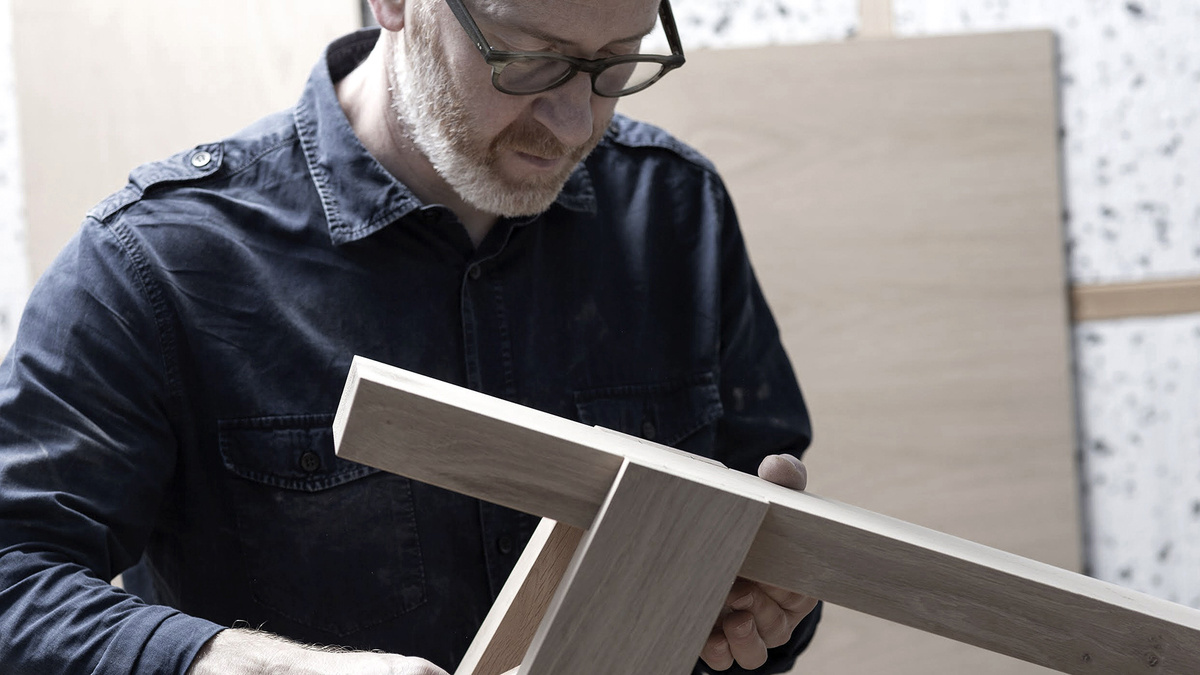
Master woodworker Derek Welsh. Image courtesy: Reuben Paris
Parni Ray
12.02.2021
Derek Welsh lives and works in Glasgow. Having started as an apprentice at a small carpentry and joinery firm in Scotland, he has worked with wood for more than 25 years and stayed true to his craft training.
His work reflects his regard for the many abilities (and limitations) of the human hand, the joys of crafting manually, and the rigour it demands. The key ingredient of all his creations, he says, is his unrelenting desire to make things he has never made before.
Excerpts from a lively long-distance chat.
Parni Ray (PR): Phantom Hands was introduced to your work via a pretty unique set of dominoes.
Derek Welsh (DW): Yeah, those dominoes have an interesting history.
My friends at Graphical House and I were keen on working on a pub game together. We thought of dominoes because they are quite popular here in Scottish pubs. They are also a sensorial experience, the tiles have a tactile personality and then there is that click-clack sound they make. We wanted to capture that dynamicity, hence the shape. To enhance the sounds, we went with a laminate finish.
I made a few sets by hand and we decided to have a dominoes evening in our small community in Glasgow. Then one thing led to another and Paul Smith came upon it and decided to release it as a limited edition item. So we did that, even though that wasn’t our initial goal (smiles).
But it was one thing making the initial set of 28 pieces, quite another to handcraft a 100 such sets!
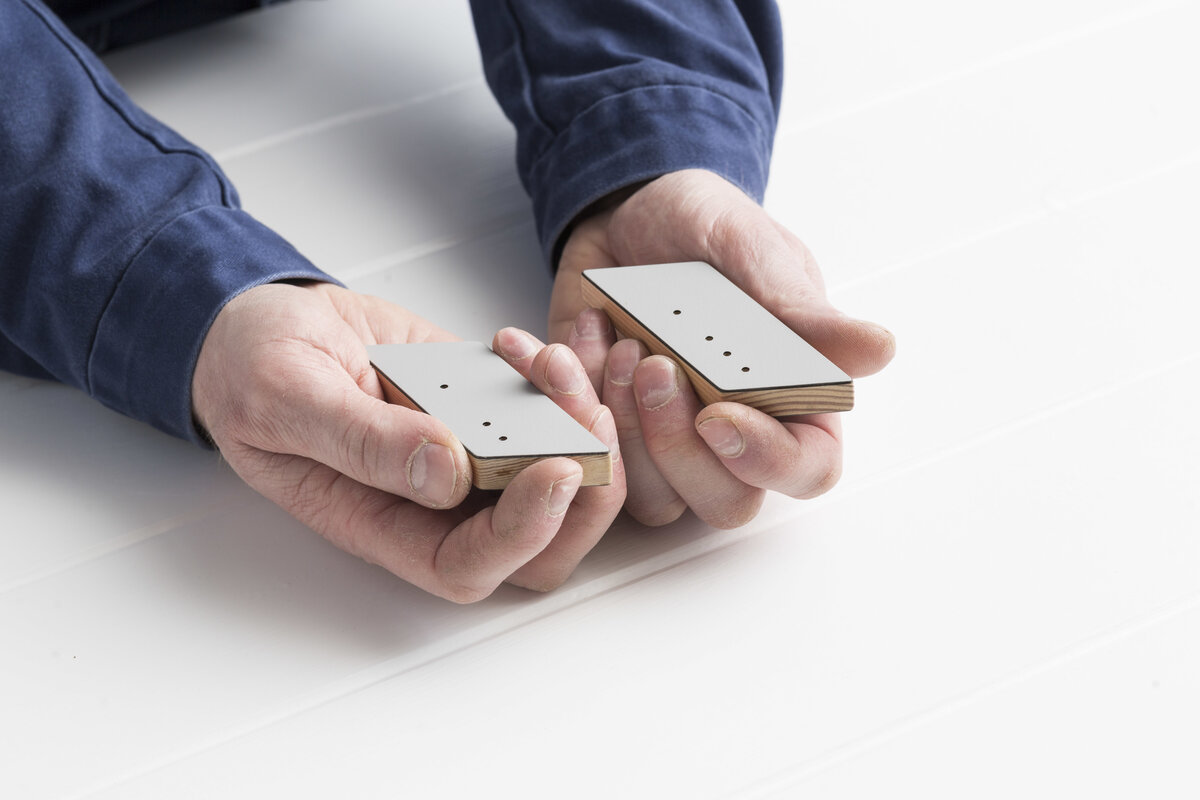
Image: Reuben Paris.
PR: You are a one man enterprise...
DW: Yeah, and it’s at times like these that you wonder if you probably need more hands on deck (laughs). But not really, I really enjoy working alone. Even when I have help or an apprentice, I am eager to get back to making my own coffee and drinking it by myself.
PR: Did you start as an apprentice?
DW: Yes, at a local wood workshop in Dumfries and Galloway, Scotland. At 16.
PR: What was that like?
DW: Intense (laughs). I apprenticed for about seven years with seven others at a family run, bespoke carpentry company. They did really specialized interior work and we apprentices focused on specific aspects of woodworking.
This gave us a thorough, focused understanding of wood and the things we learnt to make with it. One of the people I apprenticed with, for instance, now has a business that only makes staircases.
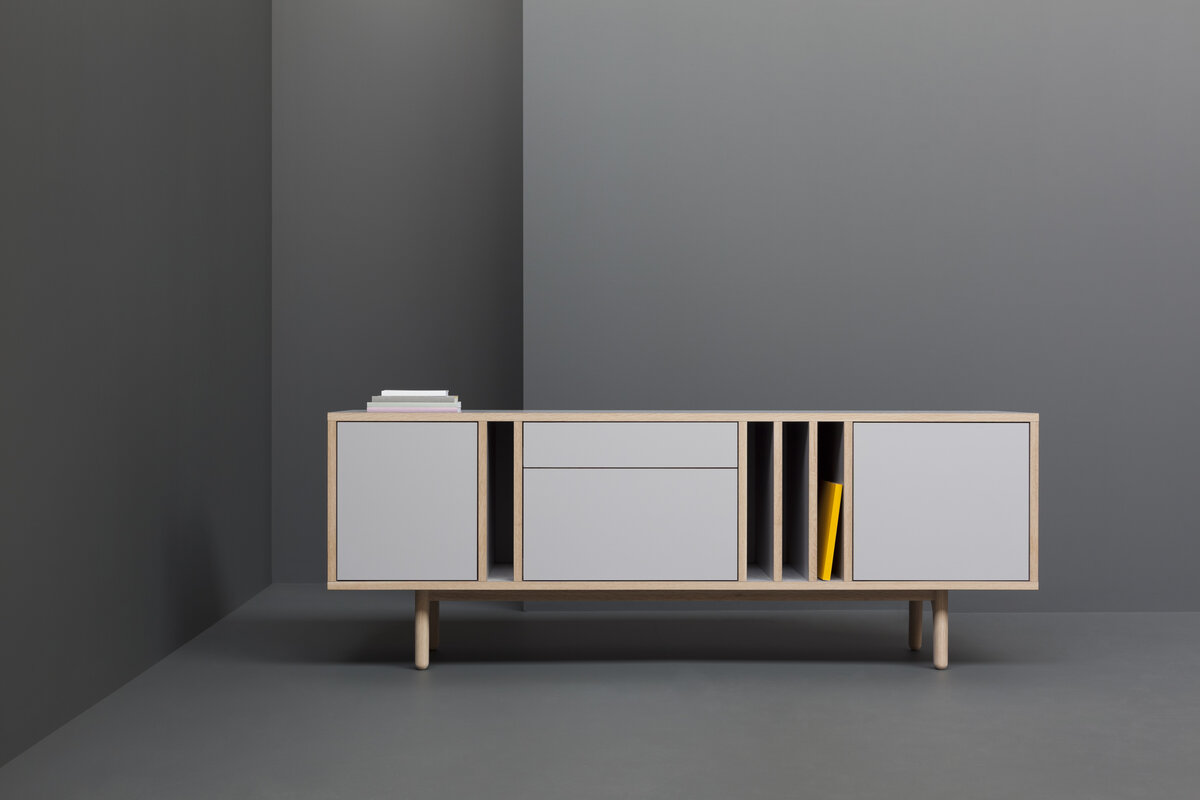
Image: Reuben Paris
PR: Were you always interested in woodworking?
DW: Not particularly. It was my mum who got me the apprenticeship. Back then I was interested in textile design, but my mother wasn’t having it (laughs). She was like, ‘nah, woodworking’.
PR: When did you start your own workshop?
DW: Well, I travelled a bit after my training, went to Holland for a while. Taught a bit. Then I came back to Glasgow, worked with some friends at a Scottish opera. Then in 2005, I thought, ok, the time has come to start my own setup. So here I am.
PR: You spend a lot of time here (at the studio)...
DW: (Laughs) I am an early person so, typically, I will be at my workshop by 7 in the morning, 8 during winters, and work till 6 in the evening. My new workshop is a 25-minute ride from my home in Glasgow, a little further than my previous one. But it has far more natural light.
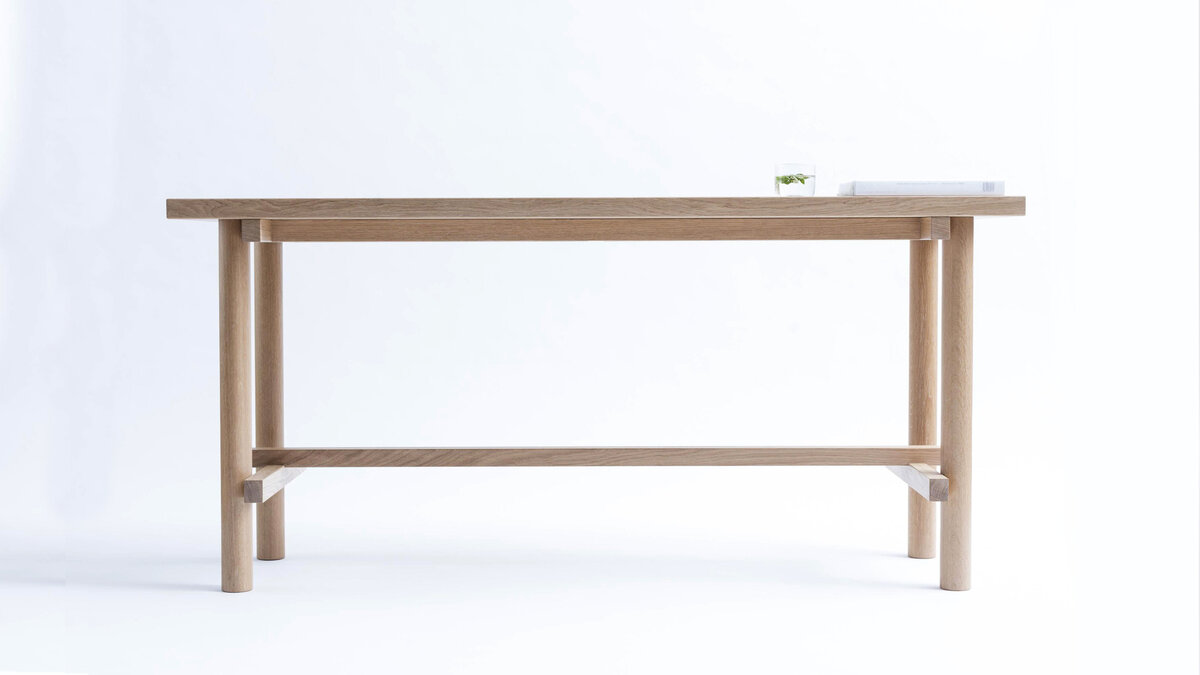
Image: Reuben Paris
PR: Tell us about your visit to the Phantom Hands workshop in 2020.
DW: I came to Bangalore for a quick week in February. It was my first time in India.
PR: How different was that setup to yours?
DW: Oh, very! To begin with I work like every other carpenter I know, on the (wood working) bench. Where as the guys in India sit on the ground. It would never even occur to me to sit down to make the things they do. And of course it would be crazy to try and make them work in the manner I am accustomed to.
But there are also many similarities. The guys working at the Phantom Hands workshop work almost completely by hand, same as me. I watched some of the young men working on the prototypes and was reminded of a younger me. They were full of questions, as I used to be at that age - ‘why this’ and ‘what will we do with that?’.
Some of them were working with their older uncles, I think, and I could see the younger guys be scornful when they didn’t think that their uncles had done a good job. I recognized that. One of my mother’s brothers is a carpenter and I get embarrassed whenever I see him do, what I think, is not great work (laughs).
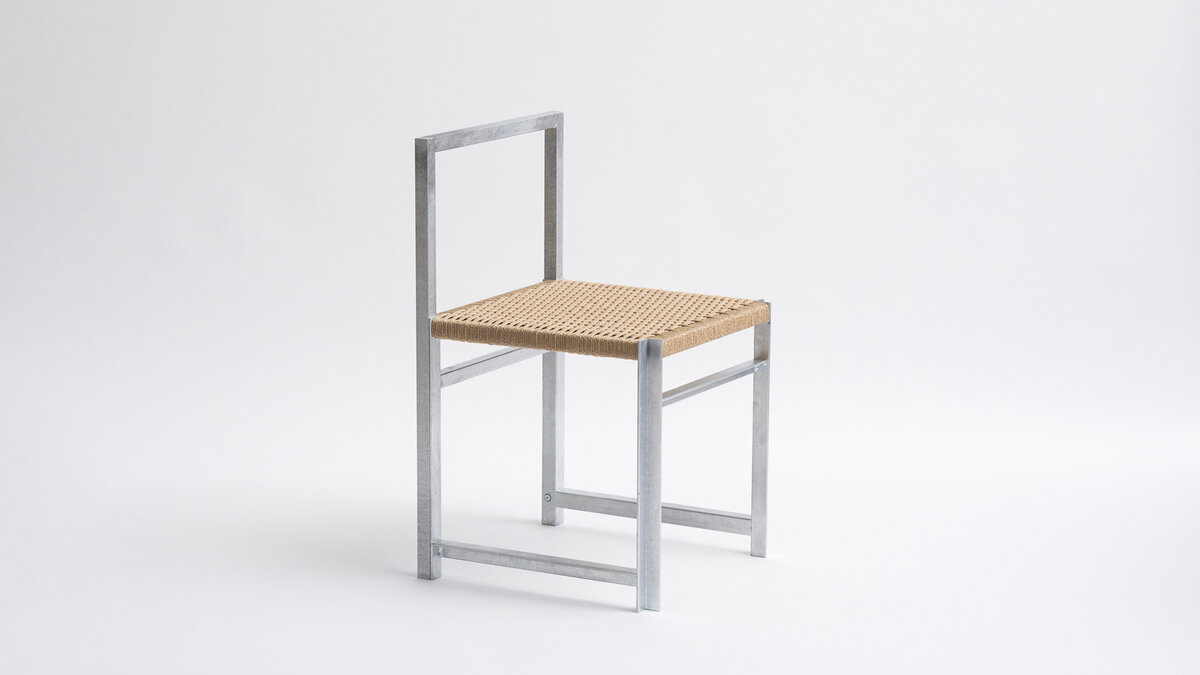
Image courtesy: Reuben Paris.
What I liked most about the workshop setup at Phantom Hands is that there is an easy flow between the employers and the carpenters. I spent a very inspiring few days with Deepak (founder) and the team, for which I am very thankful. They are all real people who want to be there and do the work they are doing. To me that is important.
PR: You came to the workshop with a few initial ideas about what you wanted to make. How did that change after your visit?
DW: I went to Bangalore with a fairly open mind. The only thing I was adamant about was making something I hadn’t made before.
As a carpenter I need constant creative stimulation. Which is why, even though the process of making something is what I most enjoy about the jobs I take up, once it’s done I don’t like looking back, I move on very quickly to the next thing.
After I visited Phantom Hands, I considered how the carpenters too needed that variation, especially since repeating the process was part of their job. So I wanted to do things which were not only new for me, but also for them.
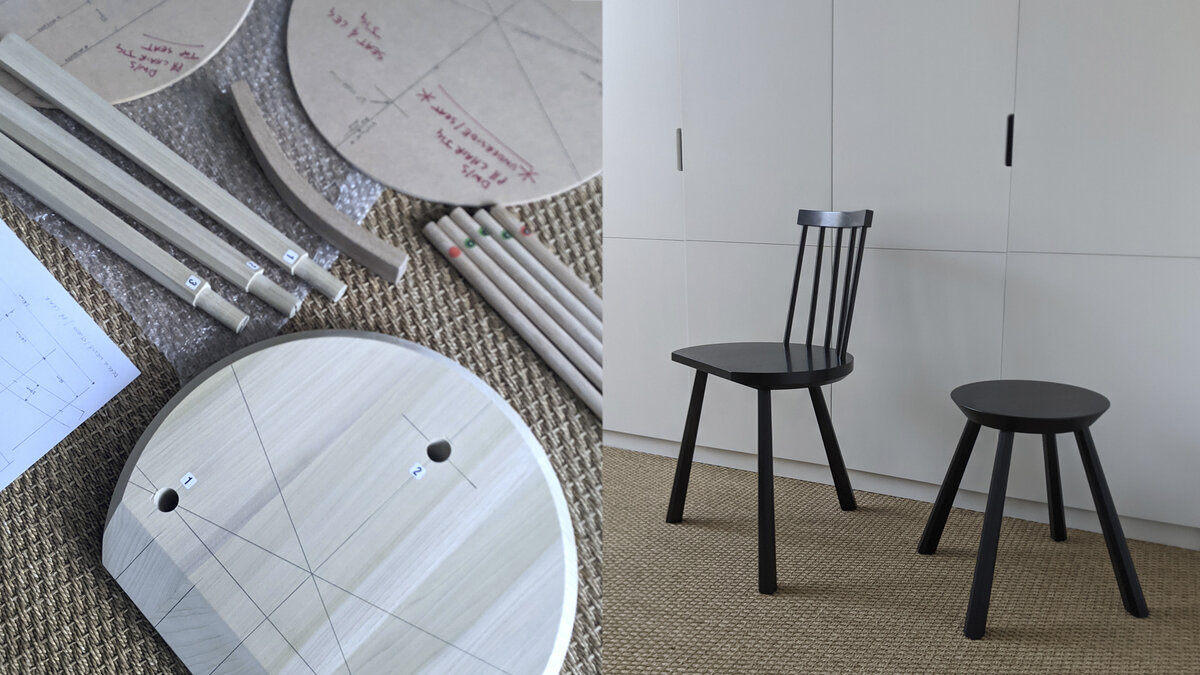
For this reason I steered clear of the elements the other designers who work with Phantom Hands have used (such as cane) and focused instead on offering different methods of making.
My emphasis was on different types of joinery. That is exciting for me and I thought perhaps it would be exciting for the carpenters at Phantom Hands too.
PR: Your visit to Bangalore came at an interesting juncture.
DW: Yeah (laughs), just in the nick of time! It was all fine when I left, but then I came back to Scotland and we went into the first COVID-19 lockdown almost immediately after.
PR: What has it been like to work on a collection for your first collaboration with a manufacturer through a socially distant 2020?
DW: Can’t say it has been very different from what I imagine it would have been like under normal circumstances. I often say that I have been socially distant since 2005 (laughs).
As for the process...(pauses) I came up with ideas, then I made the prototypes and sent them to Phantom Hands. It was really easy and I was surprised to find how quickly you can get things across to people via mail. One of the packages I sent did go missing for a few days...but on the whole the communication process was super smooth. It was almost as if we lived next door to each other!
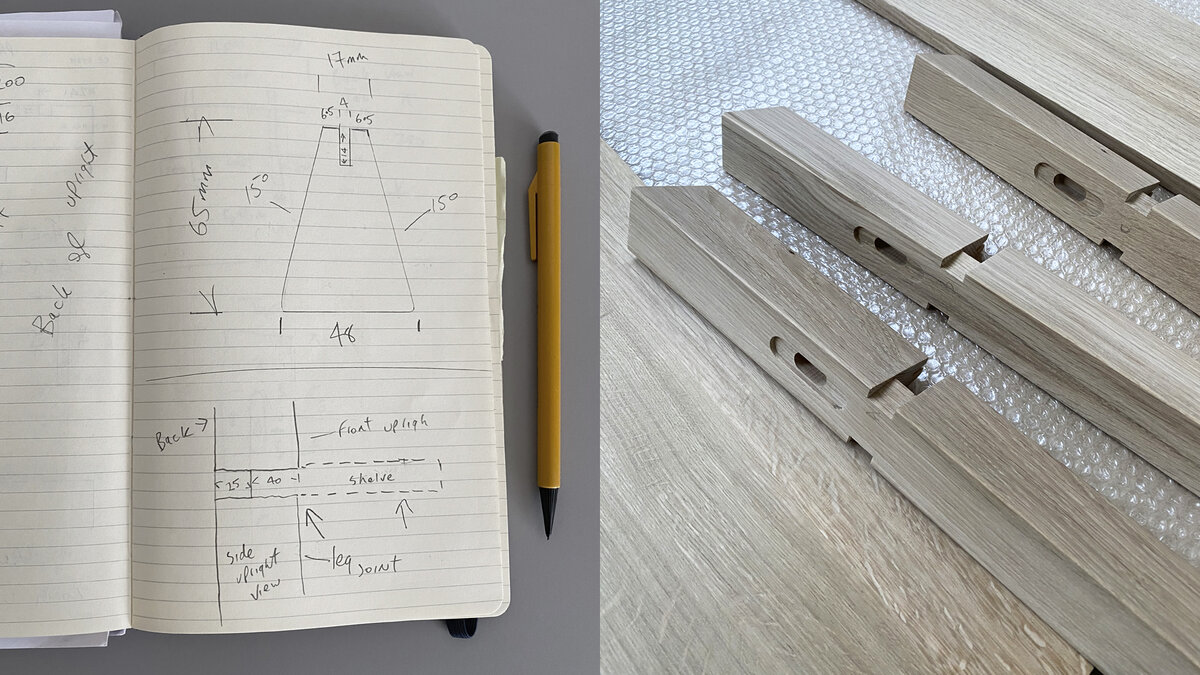
PR: Hang on, that doesn’t even begin to capture your mails. You sent the prototypes flat-packed, with elaborate handwritten notes covering every detail of the making process.
DW: (Laughs) I am old school, I love a good letter!
I thought that a prototype of the pieces I suggested would communicate far more to the carpenters than a drawing. They would be able to hold the pieces of the objects in their hands, put them together, take them apart and figure out how they are meant to work. I wanted the process involved in making the objects to be completely accessible to them so that we can be on the same page.
PR: How would you describe yourself - woodworker, maker, designer?
DW: Most designers I know work with drawings - usually digital renditions of the things they want to make. In my experience, it is fairly unique for designers to also be makers, but I am not very keen on computers myself and prefer building prototypes. So I guess you could say that my designs are led by making.
For me understanding the wood is a crucial part of the design process. Wood is never uniform or static and I am always learning how best to use it. Everything - weather, location, moisture - impacts it, makes it move. When timber expands it can bend nails, screws, it can unstick glue.
As a designer I am constantly informed by my experiences as a maker. Among the many options available I always follow along design strategies that I as a woodworker know will result in objects that will be resilient and lasting.
Visit the Derek Welsh Studio website.
Follow Welsh's work on Instagram.
See the Derek Welsh Collection for Phantom Hands in our gallery.
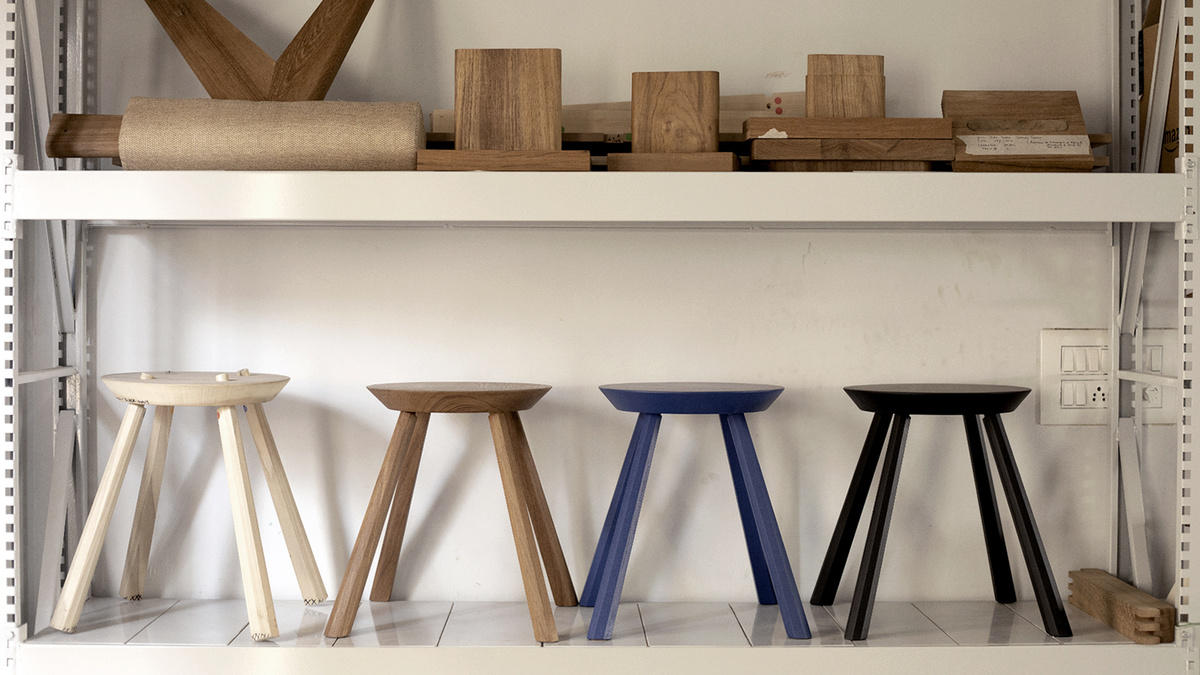
Making of the Derek Welsh Collection: A Look Behind the Scenes
The Derek Welsh Collection for Phantom Hands came together between Bangalore and Glasgow, in the midst of a world halted by COVID-19. A look at the journey behind its making.
Read More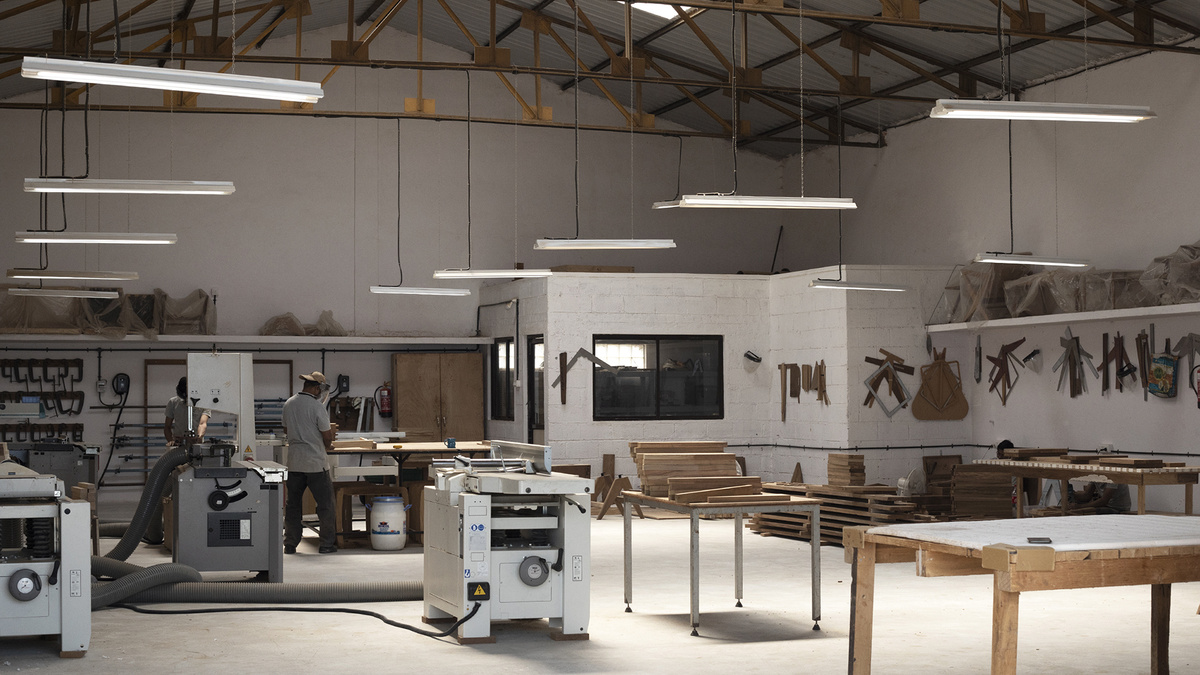
Handcrafted Modernism: A Short Video on Craft & Design at Phantom Hands
With footage and interviews filmed between 2019 and 2021, this short film offers a glimpse into the process of co-creation between designer and artisan at Phantom Hands.
Read More